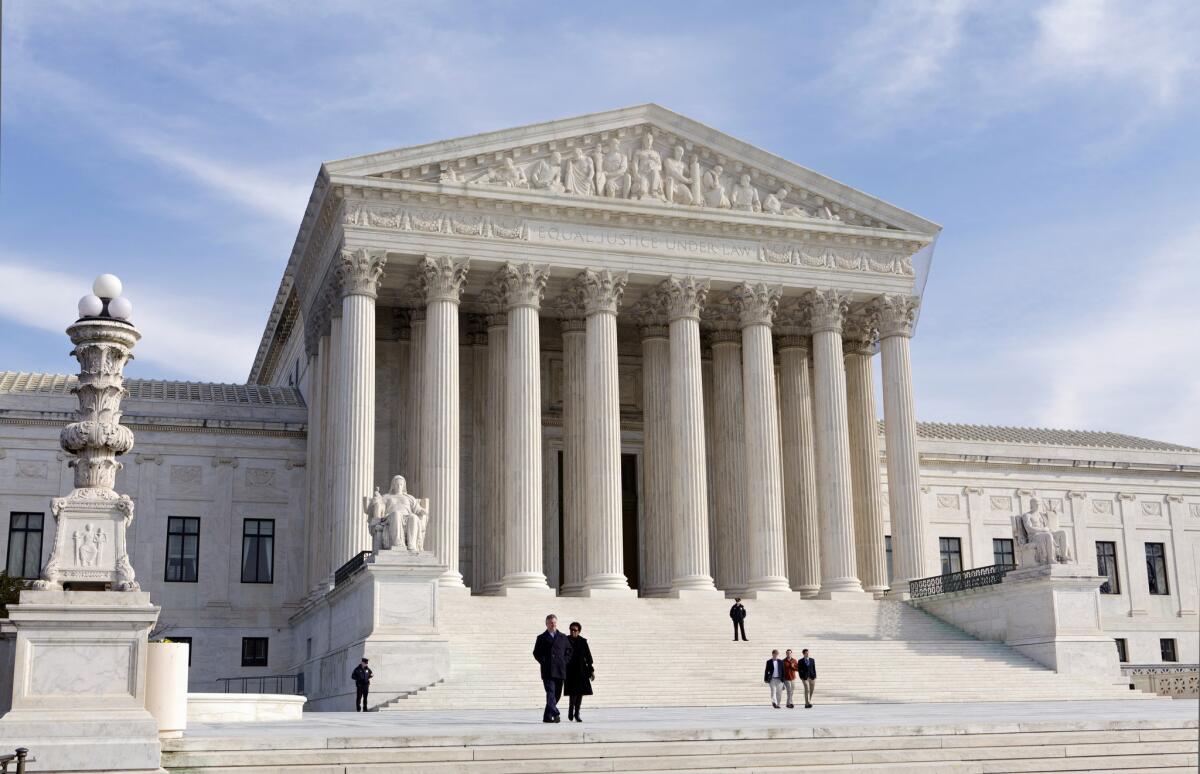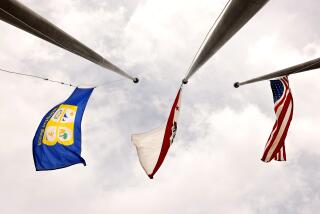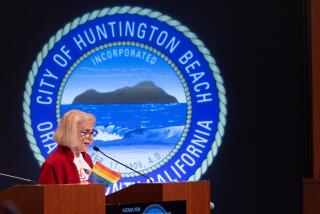Ruling on U.S. flag raises questions about students’ free-speech rights

The Supreme Court rejects a free-speech appeal from several California high school students who were told they could not wear a shirt emblazoned with an American flag on the Cinco de Mayo holiday.
The Supreme Court rejected a free-speech appeal Monday from several California high school students who were told they could not wear a shirt emblazoned with an American flag on the Cinco de Mayo holiday.
The court’s action has the effect of upholding school officials who said they acted because they feared an outbreak of fighting between white and Mexican American students.
The court’s action sets no legal precedent, but it raises questions about whether students have meaningful free-speech rights on matters that may provoke controversy.
One parent whose son was sent home for wearing an American flag said he was disappointed by the decision. “I found it shocking. The flag represents the nation as a whole. It is about respect for the United States,” said Kendall Jones of Morgan Hill, Calif. “We can embrace a multicultural celebration at school, but that is no excuse for excluding the flag.”
Many school officials in recent years have told students they may not wear the Confederate flag on their clothing at school or display anti-gay messages. The case of Dariano vs. Morgan Hill Unified School District drew greater attention because an American flag was considered the provocative message.
Los Angeles lawyer William Becker, who sued on behalf of the parents, called the court’s decision a victory for “bullies” and a defeat for free speech. “This opens the door for a school to suppress any viewpoints that are opposed by a band of vocal and violent bullies,” he said.
The Live Oak High School south of San Jose had seen at least 30 fights between white and Mexican American students. And the annual celebration of the Mexican holiday on May 5 had heightened the tension.
On that day in 2010, the principal told several white students they must remove their shirts featuring an American flag or go home.
They went home but, with the help of their parents, later sued the school officials for violating their rights under the 1st Amendment.
Federal judges in San Francisco rejected their free-speech claim on the grounds that the school officials had a reasonable fear that their shirts could provoke fighting or a disruption of the school’s activities.
Lawyers for the parents had urged the justices to hear an appeal, and they won the backing of prominent 1st Amendment advocates, both liberal and conservative. They included UCLA law professor Eugene Volokh, UC Irvine School of Law Dean Erwin Chemerinsky and Chapman University law professor John Eastman.
They cited a ruling from the Vietnam War era that said young people do not lose their constitutional rights when they go to school. But the justices have steered clear of school free-speech disputes in recent years.
In turning down the Dariano case Monday, the court as usual did not explain its reasoning for refusing to hear an appeal.
One possible explanation is that the key people in the case — including the students and the school officials — had left the school. The former principal retired and recently died of a heart attack.
But the court’s action leaves in place a ruling by the U.S. 9th Circuit Court of Appeals that said judges should defer to school officials whenever they have reason to believe the display of clothing or other symbols might trigger trouble.
Twitter: @DavidGSavage
ALSO:
Opinion L.A.: Mexican flag, si; American flag, no?
Op-Ed: Cinco de Mayo -- a truly Mexican American holiday
Supreme Court revives Notre Dame’s challenge to contraceptive policy
Attorneys battle over who will argue for gay marriage in Supreme Court
More to Read
Start your day right
Sign up for Essential California for news, features and recommendations from the L.A. Times and beyond in your inbox six days a week.
You may occasionally receive promotional content from the Los Angeles Times.







